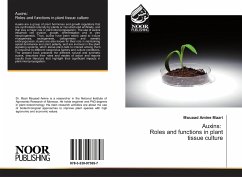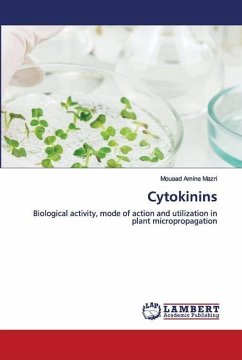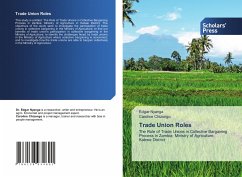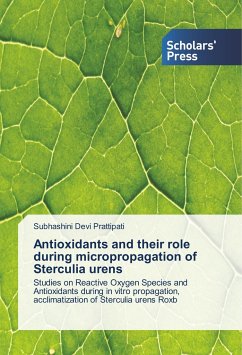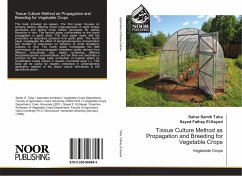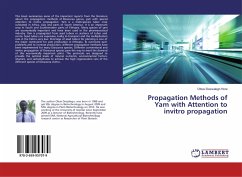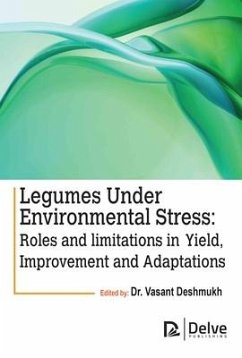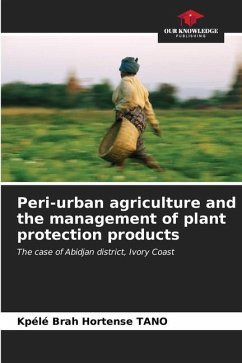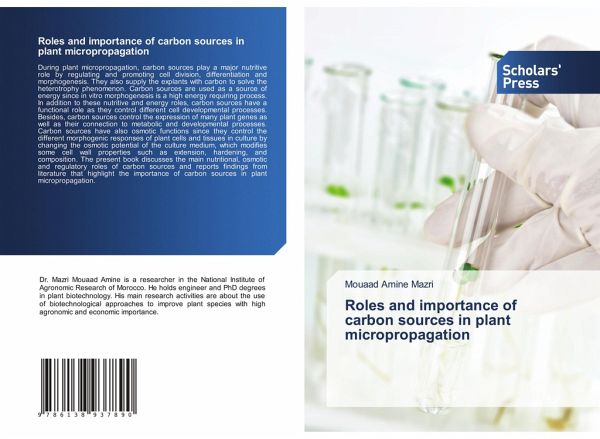
Roles and importance of carbon sources in plant micropropagation
Versandkostenfrei!
Versandfertig in 6-10 Tagen
30,99 €
inkl. MwSt.

PAYBACK Punkte
15 °P sammeln!
During plant micropropagation, carbon sources play a major nutritive role by regulating and promoting cell division, differentiation and morphogenesis. They also supply the explants with carbon to solve the heterotrophy phenomenon. Carbon sources are used as a source of energy since in vitro morphogenesis is a high energy requiring process. In addition to these nutritive and energy roles, carbon sources have a functional role as they control different cell developmental processes. Besides, carbon sources control the expression of many plant genes as well as their connection to metabolic and de...
During plant micropropagation, carbon sources play a major nutritive role by regulating and promoting cell division, differentiation and morphogenesis. They also supply the explants with carbon to solve the heterotrophy phenomenon. Carbon sources are used as a source of energy since in vitro morphogenesis is a high energy requiring process. In addition to these nutritive and energy roles, carbon sources have a functional role as they control different cell developmental processes. Besides, carbon sources control the expression of many plant genes as well as their connection to metabolic and developmental processes. Carbon sources have also osmotic functions since they control the different morphogenic responses of plant cells and tissues in culture by changing the osmotic potential of the culture medium, which modifies some cell wall properties such as extension, hardening, and composition. The present book discusses the main nutritional, osmotic and regulatory roles of carbon sources and reports findings from literature that highlight the importance of carbon sources in plant micropropagation.



